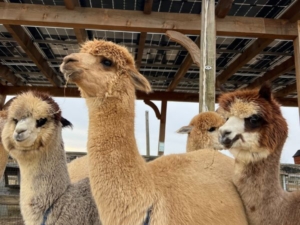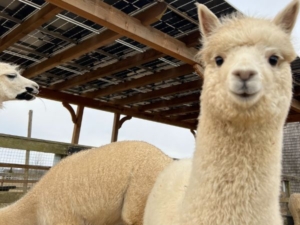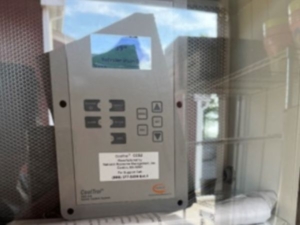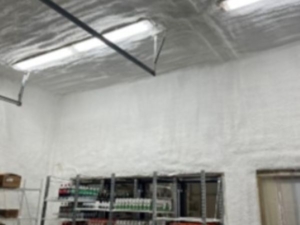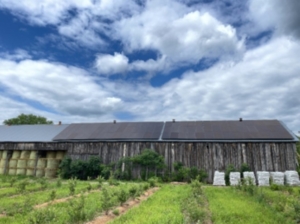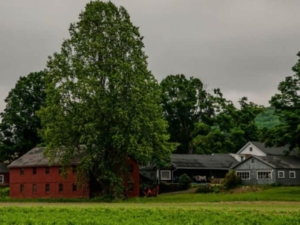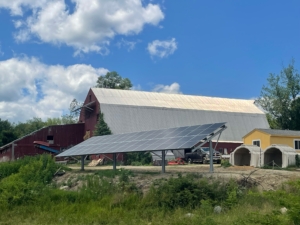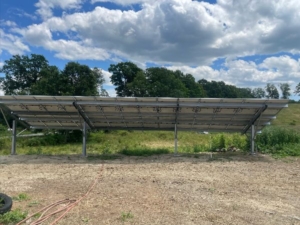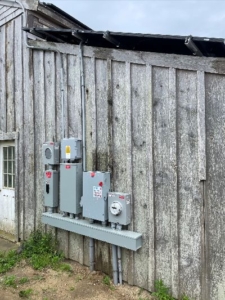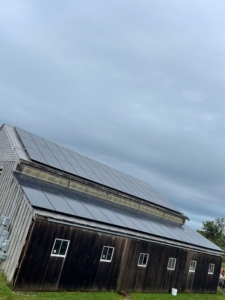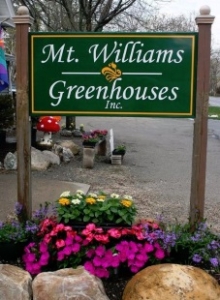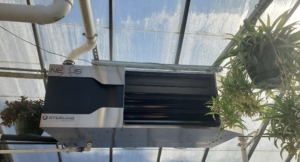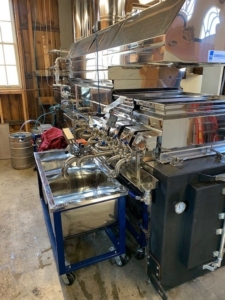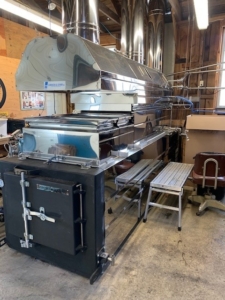Energy Efficiency Tips for Farms
Looking for examples of energy savings for your farm? Most practical investments? Questions to ask your vendor or installer? Start here!
Successful Farm Energy Projects
Island Alpaca Company
Island Alpaca Company is an alpaca breeding farm on Martha’s Vineyard. The farm is home to over 35 alpacas and two llamas, which you can view on their live alpaca cam.
Pictured here is the farm’s 33-panel Harvest Sun Solar array, which sits on top of a hand-made cedar pergola. The array not only generates over 19,000 kWh and saves over $3,800 per year, it also provides needed shade for the animals in the summer and benefits the public. This project was funded by a $44,892 grant from the MDAR Climate Smart Agriculture Program.
Tougas Family Farm
Tougas Family Farm, a 2nd generation fruit farm in Northborough, recently upgraded their lighting and refrigeration systems to be more efficient. This project was achieved with funding support from both the farm’s electric utility (National Grid) and the Massachusetts Farm Energy Program.
MFEP staff worked closely with the farm’s contractor to ensure that Tougas Family Farm received the maximum funding possible, while still getting the project done quickly. The project itself included not only upgrading lighting fixtures to LEDs, but also upgrading motors and adding controls and monitoring to the farm’s refrigeration.
The efficiency upgrades that Tougas Family Farm installed save over 29,000 kWh of electricity each year, which in turn saves the farm over $10,000 annually. More than $22,000 of the total project cost was covered by utility and MFEP incentives, or about 87%
Warner Farm
Warner Farm in Sunderland, also home to Mike’s Maze, installed a roof-mounted solar electric project in 2023. This project was achieved with the help of funding from the Massachusetts Department of Agriculture’s Climate Smart Agriculture Program (CSAP), as well as the USDA’s Rural Energy for America Program (REAP).
The solar array at Warner Farm produces over 38,000 kWh of electricity each year, saving the farm over $10,000 annually. More than $70,000 of the $93,000 project was covered by grant money, or about two thirds of the cost, allowing for a fast payback for the farm. MFEP staff worked with the farm to get their grant applications completed and submitted on time, and also funded 75% of their energy audit.
Chase Hill Farm
Chase Hill Farm in Warwick is an organic, grass-fed dairy that sells cheese, raw milk, beef, pork, chicken, and eggs.
With the help of the Massachusetts Farm Energy Program, Chase Hill applied for both the MDAR CSAP Grant and USDA REAP Grant for their ground-mounted solar array. They were awarded over $45,000 from CSAP and over $19,000 from REAP, an amount that together covered almost 90% of the cost of the array. MFEP also helped Chase Hill with the audit they were required to have as part of the terms of the CSAP Grant.
Additionally, Chase Hill was able to take advantage of a bridge loan program through the MFEP and the Center for EcoTechnology’s Community Climate Fund. Through these funding sources, Chase Hill now has a solar array that produces over 16,000 kWh of electricity each year, as well as saves them more than $3,800 annually.
Moor’s End Farm
Moors End Farm in Nantucket is a family-owned nursery and greenhouse that sells annuals, perennials, small shrubs, and produce.
With the help of the Massachusetts Farm Energy Program, Moors End applied for the MDAR CSAP grant for a roof-mounted solar array in the spring of 2021. They were awarded $50,000 from that program, an amount that covered almost 60% of the cost of the array. MFEP also helped Moors End with the audit they were required to have as part of the terms of the grant.
The farm was able to get its new solar array up and running in the spring of 2022. It will produce over 40,000kWh of electricity for the farm each year, as well as save them more than $15,000 annually.
Mount William’s Greenhouses
Mount Williams Greenhouses is a greenhouse grower and florist that has been operating in the Berkshires for over 75 years.
When Mount Williams was looking to meet increased demand by upgrading the heating system in their greenhouse, they reached out to the Massachusetts Farm Energy Program for help. MFEP was able to assist the farm with securing not only a REAP grant but also an incentive from Berkshire Gas and a small incentive from the Mass Farm Energy Program itself.
This heater upgrade saves Mount Williams more than 2,600 therms and $2,300 annually. After combining funding from Berkshire Gas, REAP, and MFEP, the entire cost of the project was covered. However, it is important to note that these grants are reimbursable, and farms must have payment upfront before being paid back by the grants.
That being said, even small projects like these heaters can be beneficial for farms. They allow farms to obtain equipment that better fulfills their needs, and savings add up over time.
Winston’s Sugar House
Winston’s Sugar House is a family-owned maple sugar farm in Shelburne Falls, producing syrup, maple cream, and maple candy.
Winston’s wanted to upgrade their old evaporator with a new model but needed to purchase it on a faster timeline than the MDAR grant would allow. Instead, the Massachusetts Farm Energy Program was able to help the farm with the project by offering our incentive funding.
The new evaporator saves Winston’s 16 cords of wood and over $4,000 annually. These savings were determined in the farm energy audit that the sugar house had performed, also with funding from MFEP.
Overall, Winston’s Sugar House had 75% of its audit cost covered and received a $4,000 project incentive from MFEP.

